Debut of the Month: CHOIR BOY's Jeremy Pope Rejoices In His Broadway Debut
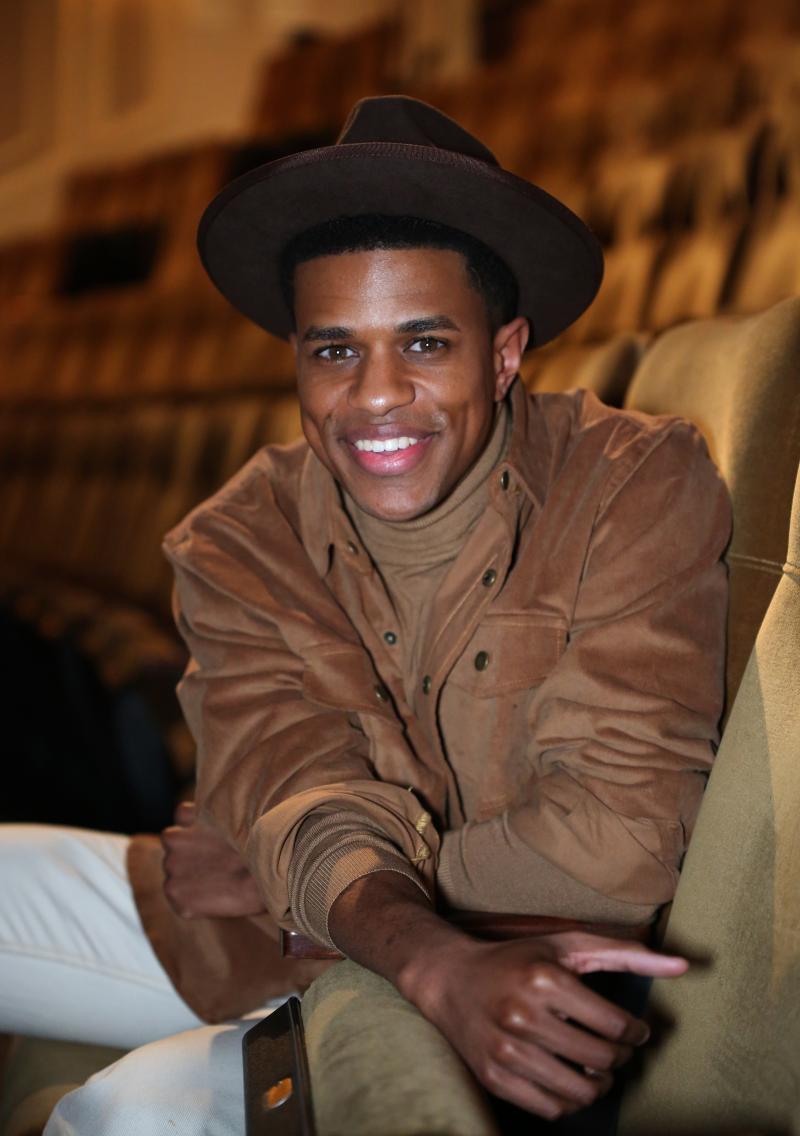 Jeremy Pope makes his Broadway debut in Oscar winner Tarell Alvin McCraney's soaring, music-filled work, Choir Boy. The actor portrays Pharus Jonathan Young, a talented student at the Charles R. Drew Prep School for Boys who is poised to take his rightful place as the leader of the school's legendary gospel choir, yet not everyone feels he's the appropriate choice because of his sexuality. The high school senior finds himself in a battle with his own community as he struggles to find his inner strength and his true identity. Today, the triple threat speaks to BroadwayWorld about making his Broadway debut in a play that celebrates the power of storytelling.
Jeremy Pope makes his Broadway debut in Oscar winner Tarell Alvin McCraney's soaring, music-filled work, Choir Boy. The actor portrays Pharus Jonathan Young, a talented student at the Charles R. Drew Prep School for Boys who is poised to take his rightful place as the leader of the school's legendary gospel choir, yet not everyone feels he's the appropriate choice because of his sexuality. The high school senior finds himself in a battle with his own community as he struggles to find his inner strength and his true identity. Today, the triple threat speaks to BroadwayWorld about making his Broadway debut in a play that celebrates the power of storytelling.
[NOTE: BroadwayWorld's fabulous photographer Walter McBride captures images of the Broadway stars profiled in our monthly column in a special photo shoot. Check out the pics of Jeremy Pope throughout the feature!]
Congratulations on CHOIR BOY! You have been with the show since the New York City Center production in 2013.
Yes, this was my first job back in 2013 and now here we are, bringing it back five years later to a bigger audience. Tarell has since won an Oscar so some things have certainly changed and it's all very exciting. And I'm just so super grateful to be a part of it since the beginning and watch the play evolve into what it has become.
I'm sure you have also changed and grown during this period. Has that shaped the way you now view this story and this character?
For sure. I think by coming back to this role I have realized how special and important it is as far as representation. I think these type of plays, where the lead is a black man, come around once in a blue moon. And as a young, black artist, I understand how special and important it is to see yourself represented and how much healing there is to see yourself, or at least a fragment of your life, being portrayed on stage. So that is something I am much more conscious of now. Back in 2013 I was just grateful to be cast in a production that my mom would be able to see, after all of the auditioning I had finally gotten a 'yes.' So that was the triumph back then. But now to be able to be a 'yes' but also to be an example for so many artists and black men needing and wanting to hear their story I feel is a powerful thing. So I'm just really relishing this moment every day.
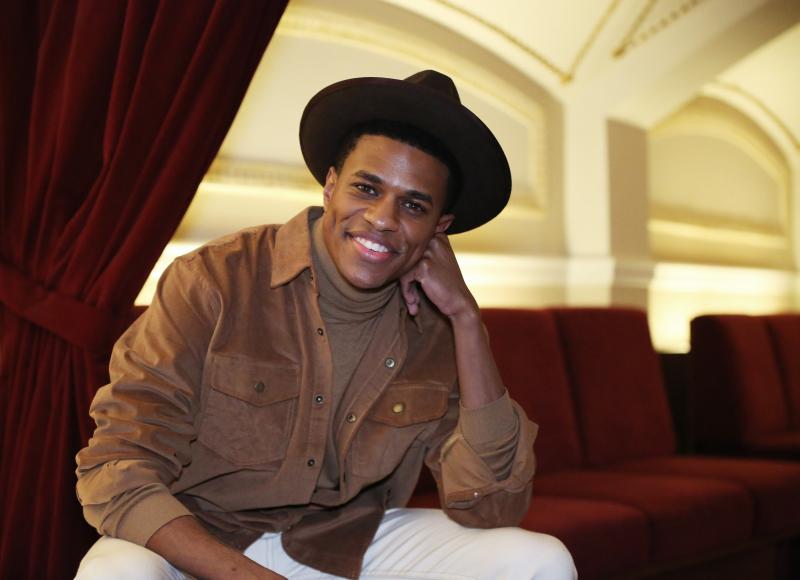
The show feels so current. Did Tarell make many changes since the original 2013 production?
Well one thing that is very interesting is that we have a line in our play that talks about 'spouting off the mouth like Kanye at a press conference.' And that line always gets a big laugh and applause from the audience. But the amazing thing is, that line was in the original production in 2013. So it's kind of crazy because that is one of those lines that feels so current and rings even more true today. But I think what really has changed is that in these past five years, Tarell has gone off to head the Playwright Department at Yale. So he has had to run his own institution of young, ambitious creative artists who have questions about what it is to be a playwright etcetera. So then for him to come back now to a play which is about a headmaster running an institution and trying to shepherd in all of these young men, he came back informed. So I think that very much spearheaded his motivation for the changes he decided to make to the current production.
CHOIR BOY is really a coming-of-age story which examines many of the issues that teens face today. What kind of feedback do you receive from young audience members after the show?
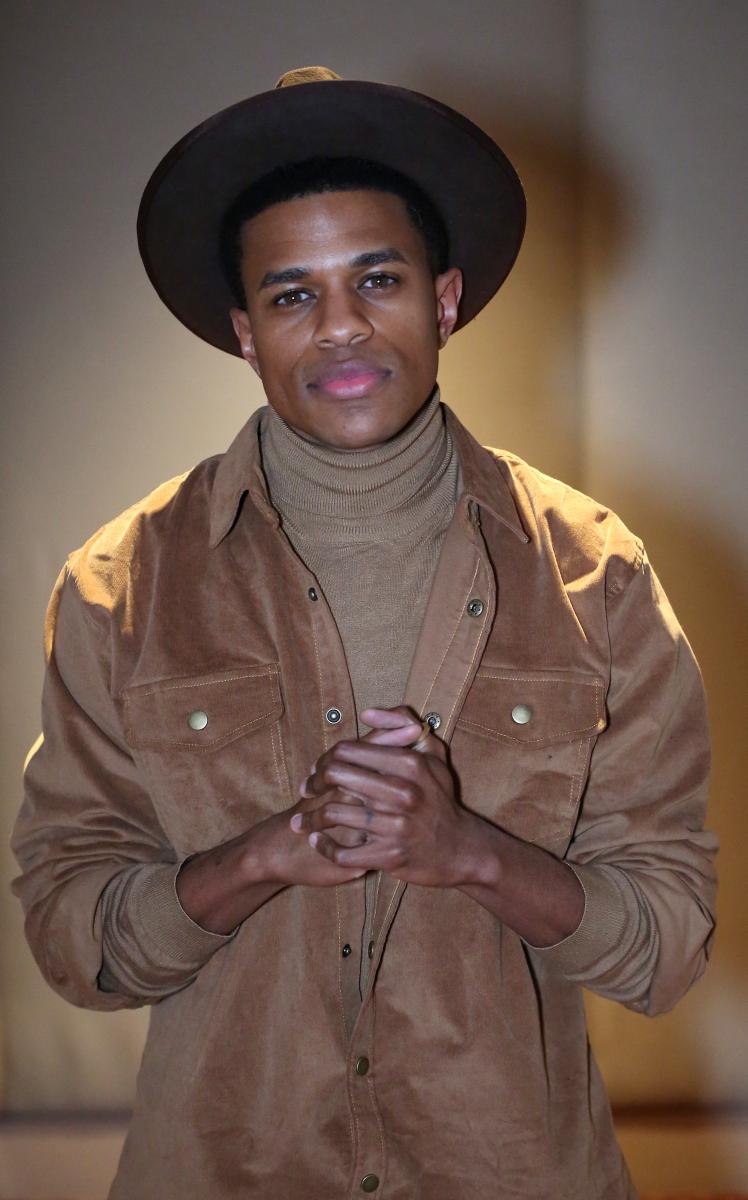 You know I've met a lot of people who are just so thankful that they were in the house that night to experience what it is that we're doing. You know the show has a way of making audience members want the story to end a certain way for Pharus. They want him to wind up winning this round at the end. But even though it doesn't end the way they hope, I think what it does do is humanize him and show how strong he is. That little smile that he has at the end of the play tells us that he is going to be okay and that while it may be hard and while he may struggle to keep fighting, he knows who he is and he's going to be strong and he's going to be okay. And I think that is so powerful to see. And that is really the feedback I get from a lot of people. There are so many people at the stage door who just want to hug me, and I don't mind, I love it and I accept it all, because I know they really just want to hold Pharus and make sure that he's okay. So I just love that power of storytelling.
You know I've met a lot of people who are just so thankful that they were in the house that night to experience what it is that we're doing. You know the show has a way of making audience members want the story to end a certain way for Pharus. They want him to wind up winning this round at the end. But even though it doesn't end the way they hope, I think what it does do is humanize him and show how strong he is. That little smile that he has at the end of the play tells us that he is going to be okay and that while it may be hard and while he may struggle to keep fighting, he knows who he is and he's going to be strong and he's going to be okay. And I think that is so powerful to see. And that is really the feedback I get from a lot of people. There are so many people at the stage door who just want to hug me, and I don't mind, I love it and I accept it all, because I know they really just want to hold Pharus and make sure that he's okay. So I just love that power of storytelling.
Were there things from your own personal experiences that you were able to tap into for your portrayal of Pharus?
Well I think Pharus is very ambitious and he's very hungry and he wants to be accepted. And he thinks that he's going by the book and doing all of the things he should be doing to be one of them. And likewise for me as an artist it can be tricky. You're going into these audition rooms and you're putting out your heart and things that you have worked on and most of the time it comes back as a 'no.' And it's hard not to Take That to heart and not grow weary of who you are and what you are. So that in itself is something that I am able to tap into and relate to through Pharus.
What has it been like working with this talented creative team?
Well for a lot of these guys on stage it was their Broadway debut as well and I think what is so special is that Tarell and Trip [Cullman] orchestrated a space where we can be ourselves and ask hard questions that sometimes don't have the prettiest answers. And I don't believe that Tarell has an answer for the black experience and the black narrative, but he has created this opportunity to shine a light on that and I think that is so incredibly special. If only young J. Pope would have seen Choir Boy, he would have had a bit more faith in what he was venturing out to!
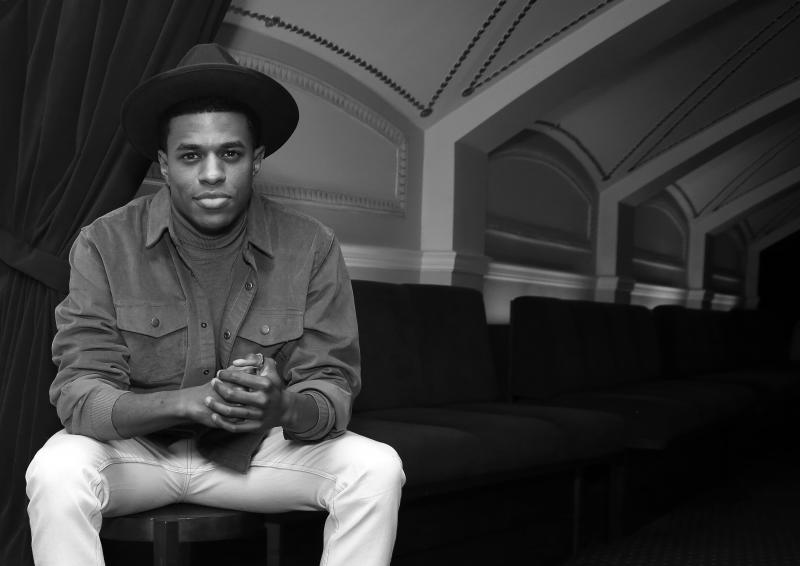
I also love Tarell's choice to incorporate these beautiful spirituals throughout the show to really enrich the story.
Well I think what Tarell has done and what is so powerful about the play with music is these are all spirituals that I grew up on, and that a lot of black people, if they grew up in the church, probably know as well. And these spirituals are woven into the script and they become the language that Tarell wanted to use. And through them, you start to realize that each boy has his own experience and interpretation of these spirituals and their lyrics. For example in "Motherless Child", these boys are away at this boarding school, away from their mothers and there's nothing like a young boy crying out for his mother, wanting her presence. Some of the Young Brothers have lost their mother while some of them just miss their mother. So that spiritual becomes the language which these boys use to push through this school year. And I think that is what is so powerful about the spirituals. While they're not always the most intricate in lyrics, they usually require you to call out and build faith, and I believe that these spirituals can build from one another. And that is something we don't hold lightly; we know that with the spirituals, combined with the movements, we are really bringing up our ancestors and it becomes about a higher calling in those moments. So we treat them with respect and we want to honor these ancient songs that we all know but we've been able to add another meaning to them.
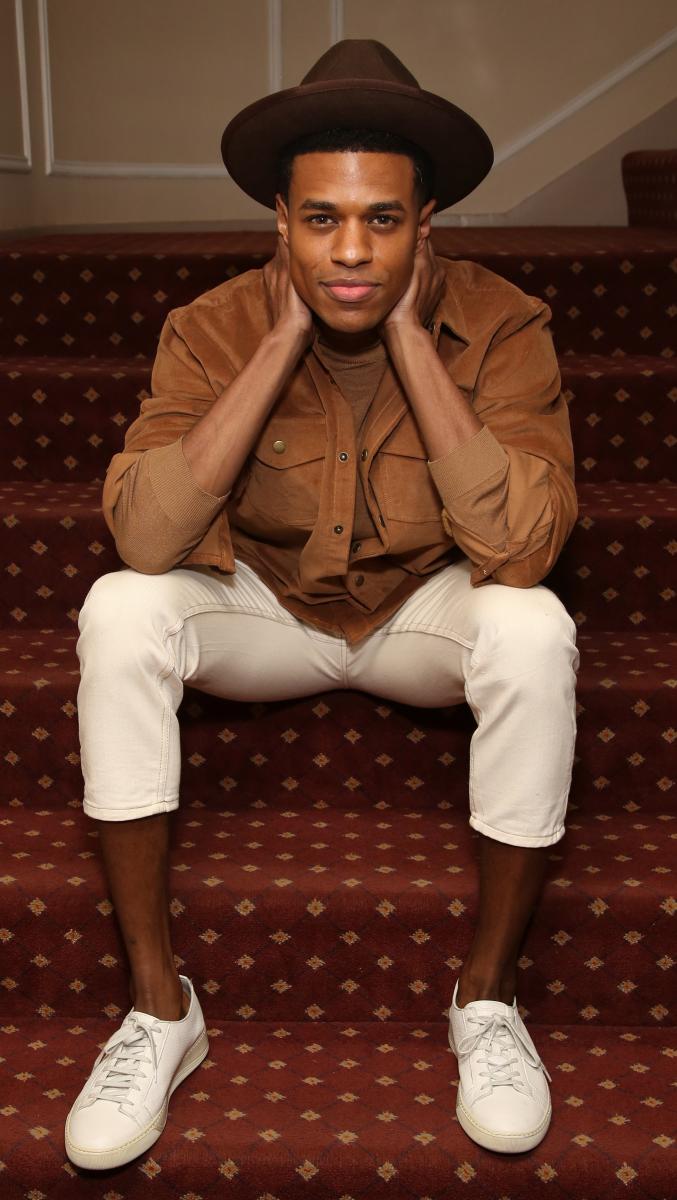 Speaking of the movements, how difficult was it to learn the intricate choreography by Camille A. Brown?
Speaking of the movements, how difficult was it to learn the intricate choreography by Camille A. Brown?
You know it was a fun experience. I remember the first day Camille came in. I don't know why we didn't anticipate that we were going to be doing dancing dancing. We thought, 'well maybe she's coming in to help with a transition or two.' But she came in and was like, 'clear the floor!' And we knew then that we were in for some treats. She is an incredible artist. I think her mind and her creative ability and what she can tap into is just so specific and so breathtaking. I remember with "Motherless Child" she had us talking about loss and grief and she had us all come up with our own gestures, not dance moves but gestures, that to each of us felt like grief. So some people put their hands out, some people held their hearts, some people got on their knees. And those were the moves that we used for the show, for that specific number. And what was so powerful about that was, you as the artist took ownership of the movement, it became something that was through you, and not something being put on you. And I think that is the type of movement we needed for a play with music. It wasn't like in a musical where the moves are about how high you could kick your leg, it was about movements that had to be grounded and had to be from a place of whatever was motivating that character. So that really helped us, it furthered the plot, it furthered the action of whatever my character was after. So all of these things; the music, the stepping, it all worked together and was thrown into the pot to make the story richer and add colors and layers to it. And it actually served as a springboard for me to get to wherever it is I am trying to get to emotionally through a scene because I had that ground, I had that song, to push through the obstacle. So in the end, we were so grateful for the choreography because I can't imagine a world where we'd do the show without it,
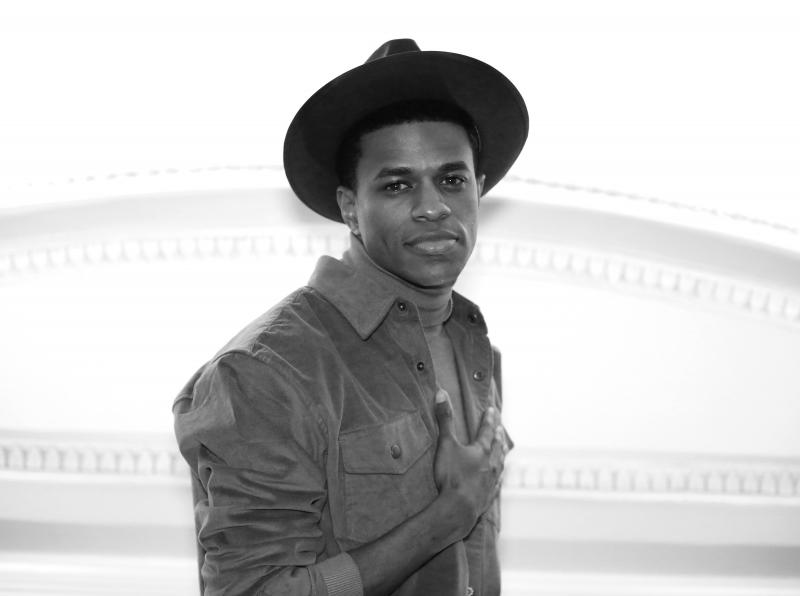
Can you share what it was like to make your Broadway debut in Choir Boy?
It was incredible. I was lucky enough to have a lot of my good, good friends in the audience, so there was so much love. I felt like it's been such a journey as this was my first job in the city, the first time my mom and dad got to see me perform professionally in New York City. And now for them to be able to see me open on Broadway and on a Broadway marquee, it was just very surreal, but it was also one of the most magical experiences to date. And I was just so grateful that in the moment, I was surrounded by the most loving and supportive people and I was able to just become a vessel and be used for the power of storytelling. And I was just so grateful. That experience is something that I will never forget.
BroadwayWorld congratulates Jeremy Pope on his Broadway debut in Choir Boy! The actor originated the roll off-Broadway in 2013. This spring he will co-star in the Broadway production of AIN'T TOO PROUD, reprising the role of Eddie Kendricks, which he originated out-of-town. Other theater credits include Invisible Thread and The View Upstairs. On screen, Pope starred in The Ranger, which premiered at the 2018 SXSW Film Festival. His singles "New Love" and "Feel So Good" are available on iTunes.


